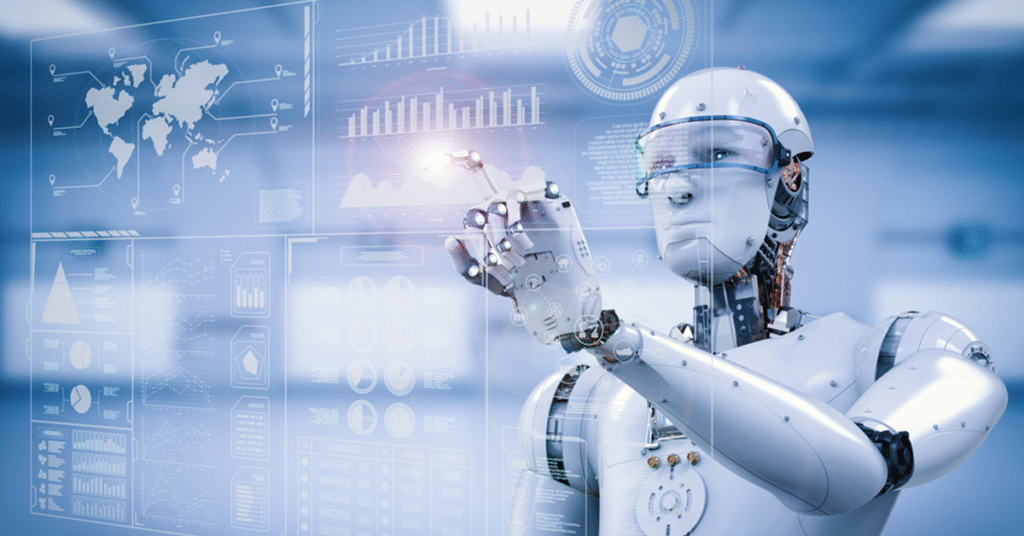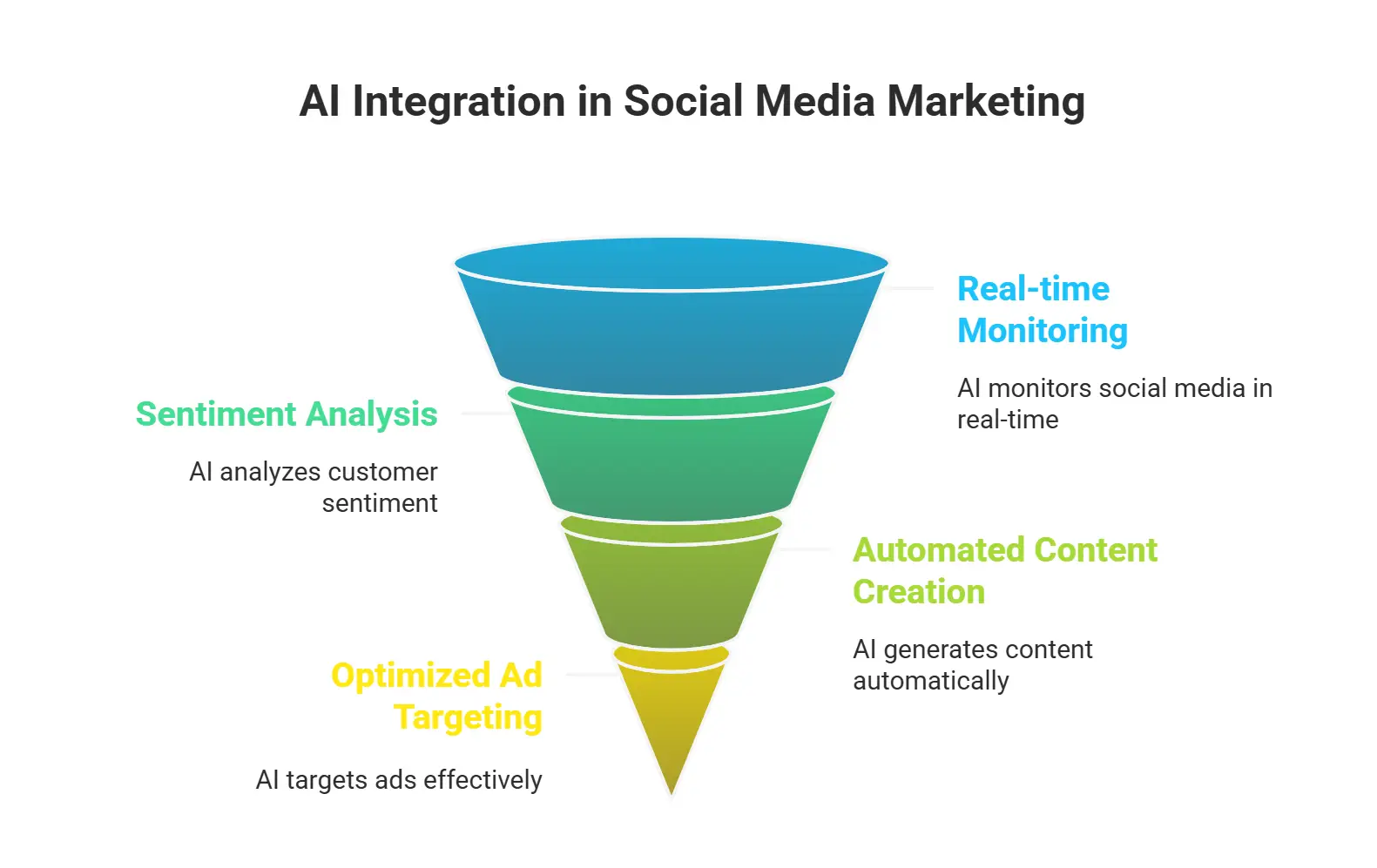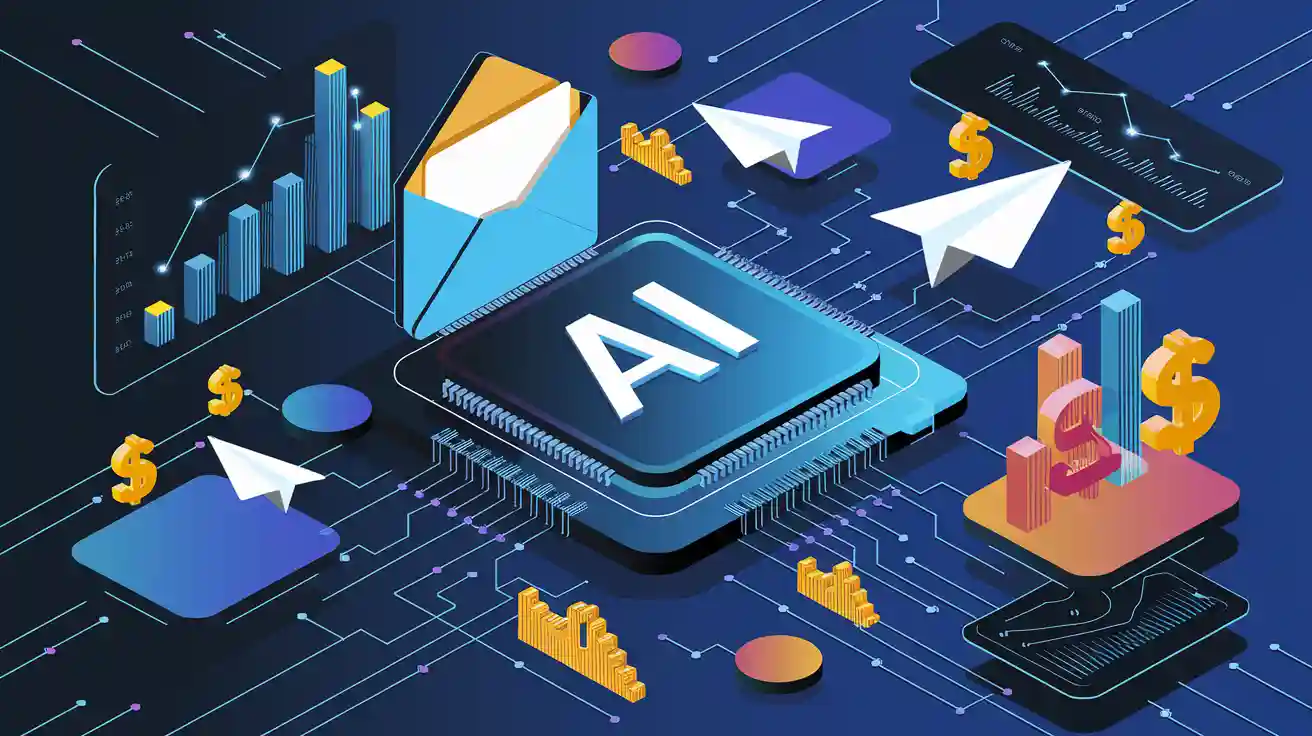In the ever-evolving landscape of digital marketing, a new frontier has emerged, one powered by algorithms, machine learning, and data-driven insights. Artificial Intelligence (AI) is no longer a futuristic buzzword; it’s a transformative force that’s reshaping how brands connect with their audiences on social media. From automating tedious tasks to uncovering deep analytical insights, AI is empowering marketers to work smarter, not harder. This in-depth article explores the profound impact of AI on social media marketing, delving into its power to automate engagement and analysis, while also navigating the critical ethical considerations of this technological revolution.
The New Social Media Playbook: AI as Your Co-pilot
The integration of AI into social media marketing represents a paradigm shift from manual, time-intensive processes to a more strategic and efficient approach. At its core, AI in this context refers to the use of intelligent technologies to automate tasks, analyze data, and make informed decisions that optimize social media performance. This isn’t about replacing the human element of marketing; it’s about augmenting it, freeing up marketers from the mundane to focus on creativity, strategy, and building genuine relationships.

The sheer volume of data generated on social media platforms is staggering. For a human marketer, sifting through this deluge of information to identify trends, gauge sentiment, and personalize content is an overwhelming, if not impossible, task. This is where AI excels. By processing and analyzing vast datasets in real-time, AI tools can provide marketers with actionable intelligence that was previously unattainable. This enhanced understanding of audience behavior and preferences allows for the creation of highly targeted and resonant content, leading to increased engagement and a higher return on investment.
The growing importance of AI is further underscored by its ability to streamline workflows. Tasks such as content scheduling, community management, and performance reporting, which once consumed a significant portion of a marketer’s day, can now be largely automated. This newfound efficiency allows teams to allocate their resources more effectively, focusing on high-impact activities that drive business growth.
Automating for Impact: AI in Action
The practical applications of AI in social media marketing are vast and varied, touching upon nearly every aspect of a brand’s online presence. Two of the most significant areas of transformation are the automation of engagement and the deepening of analytical capabilities.
Automating Engagement for a 24/7 Presence:
In today’s globalized and always-on digital world, audiences expect immediate responses and consistent engagement from brands. AI-powered tools make this a reality.
- Chatbots and Virtual Assistants: AI-driven chatbots have revolutionized customer service on social media. They can provide instant answers to frequently asked questions, handle basic customer inquiries, and even guide users through the sales funnel, all without human intervention. This ensures that customers receive timely support, regardless of the time of day, leading to improved satisfaction and loyalty.
- Automated Content Creation and Scheduling: Generative AI tools are now capable of creating compelling social media copy, from catchy headlines to engaging captions. These tools can also analyze audience data to determine the optimal times to post for maximum reach and engagement, and then automatically schedule the content accordingly. This not only saves time but also ensures a consistent and data-informed content strategy.
- Content Curation and Personalization: AI algorithms can sift through the vast expanse of the internet to find and suggest relevant content for a brand’s audience. Furthermore, they can personalize the content that individual users see in their feeds, ensuring that it aligns with their interests and past interactions. This level of personalization fosters a more engaging and relevant user experience.
Deepening Analysis for Strategic Insights:
Beyond automation, AI’s true power lies in its ability to extract meaningful insights from social media data.
- Sentiment Analysis: Understanding how your audience feels about your brand is crucial. AI-powered sentiment analysis tools can analyze mentions, comments, and reviews to gauge the overall sentiment—positive, negative, or neutral. This allows brands to proactively address customer concerns, identify areas for improvement, and capitalize on positive feedback.
- Performance Tracking and Predictive Analytics: AI dashboards can provide a comprehensive overview of key performance indicators (KPIs) in real-time. But they go a step further by using predictive analytics to forecast future trends and campaign performance. This enables marketers to make data-driven decisions, optimize their strategies for better results, and stay ahead of the competition.
- Competitive Analysis: AI tools can monitor the social media activities of competitors, providing valuable insights into their strategies, content performance, and audience engagement. This information allows brands to benchmark their own performance, identify opportunities, and refine their competitive positioning.
The Double-Edged Sword: Navigating the Benefits and Ethical Challenges
The benefits of integrating AI into social media marketing are undeniable. Increased efficiency, enhanced personalization, improved lead generation, and a better understanding of audience behavior all contribute to a more effective and impactful social media presence. Companies across various industries are already reaping the rewards. For instance, global brands are using AI to personalize their marketing messages at scale, leading to significant increases in engagement and sales.

However, the rise of AI also brings with it a host of ethical considerations that marketers must navigate responsibly.
- Data Privacy: AI’s thirst for data raises significant privacy concerns. It is imperative that brands are transparent about the data they collect and how it is used, and that they comply with data protection regulations such as GDPR.
- Algorithmic Bias: AI models are only as unbiased as the data they are trained on. If the training data reflects existing societal biases, the AI can perpetuate and even amplify them, leading to discriminatory targeting and unfair treatment of certain demographics.
- Transparency and Disclosure: As AI-generated content becomes more sophisticated, it is crucial to be transparent with audiences. Clearly labeling AI-generated content and disclosing the use of AI in marketing communications is essential for maintaining trust.
- The Erosion of Authenticity: While automation can enhance efficiency, an over-reliance on AI can lead to a loss of the human touch that is so vital for building genuine relationships on social media. Striking the right balance between automation and authentic human interaction is key.
The future of social media marketing will undoubtedly be shaped by the continued advancement of AI. We can expect to see even more sophisticated applications, from hyper-personalized content that adapts in real-time to the rise of AI-powered virtual influencers. As we embrace these exciting possibilities, it is our collective responsibility to ensure that this technology is used ethically and for the betterment of the user experience. By harnessing the power of AI while remaining grounded in the principles of transparency, fairness, and authenticity, marketers can unlock a new era of social media success.



